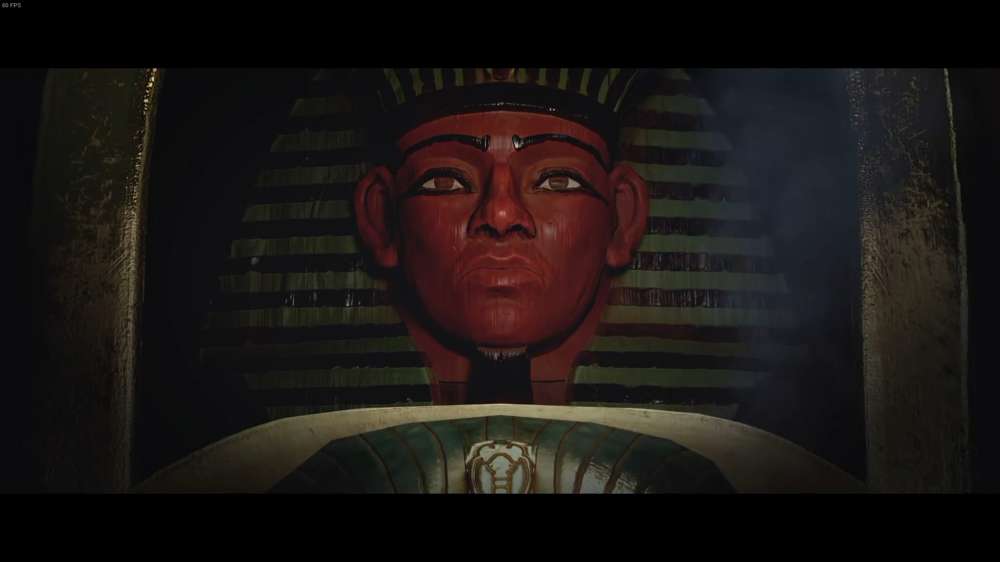Total War: PHARAOH review: A lumbering climb to the top of the pyramid
Check out our review of Total War: PHARAOH, the latest entry in the long-running strategy series from Creative Assembly.

Total War: PHARAOH presents an interesting window into the time and place of a tumultuous historical period while handing you the reigns to make your own story out of it.
While learning the ropes takes some work to get into due to poor use of tutorials and the overwhelming amount of extra mechanics in the campaign layer, buried underneath is an excellent gameplay formula that continues to stand the test of time.
Images via Creative Assembly
It's important that I preface this review by stating I'm a Total War noob. I've put a dozen hours into Rome: Total War previously, and while it pushed the series forward when it was released, there have been twenty years of evolution to the formula since then that I'm quite frankly unfamiliar with.
That being said, coming into Total War: PHAROAH after such a long time away from the franchise, I was mostly impressed with my time spent in it, and while it's not exactly converted me to a fan of the series (and with some onboarding issues that make it a chore to learn), underneath is a solid strategy game with a lot for players to sink their teeth into.
GGRecon Verdict
Total War: PHARAOH presents an interesting window into the time and place of a tumultuous historical period while handing you the reigns to make your own story out of it.
While learning the ropes takes some work to get into due to poor use of tutorials and the overwhelming amount of extra mechanics in the campaign layer, buried underneath is an excellent gameplay formula that continues to stand the test of time.
Into the Bronze Age Collapse

Total War: PHARAOH opts for a brand-new time period and setting for the long-running series, focusing on the New Kingdom period of Egypt and the Bronze Age Collapse - which acted as a sort of great reset for the kingdoms and empires of the time.
The year is roughly 1200 BC - a time of climate collapse, political upheaval, and foreign invasions in the lands of Egypt, the Levant, and Mesopotamia - and I'm on a conquest to become Pharaoh in the hopes of sorting this mess out.
I dove right in with my basic understanding of how Total War plays and decided on my character: Tausret, the royal wife of Seti II, who rules some land along the Nile Delta. To say the first several hours were overwhelming would be an overstatement, as PHARAOH throws a lot of information at you very quickly, and frankly, it doesn't do the best job of explaining itself.
- Looking for our opinion on other strategy games? Check out our The Lamplighters League review
War talk

The campaign map layer of the game is chock-full of various mechanics and systems that interconnect as you play, from Royal Decrees to Outposts and Settlements, the Court, Ambitions, infinite and finite resources to name a few. Many of them are simple enough in isolation, but with so much to manage each turn, and new stuff being thrown at you pretty regularly, it left the onboarding process with a lot to desire.
Even something as simple as freezing a window to learn more about the keywords in a tooltip would go far in helping me understand exactly what a specific system affects and how it ties into my goals of conquest.
This also stems to the UI system, as the interface is loaded with button after button that expands into larger windows with more buttons (and so on). This would be fine if the game took the time to guide you through it, but it doesn't - and it feels quite punishing as a newer player because of it.
While there's only so much you can do to explain complex features (and playing is one of the best ways to pick them up), if recent Paradox games like Crusader Kings 3 and Victoria 3 can provide excellent tutorials, I see no reason why Creative Assembly can't step up their game on this front.
After a dozen hours of playtime, I found myself getting the hang of things, building up a rhythm for taking my turns, and many of the separate mechanics suddenly began to click in place.
I love turn-based strategy, so once I was smooth sailing and painting the map with my expanding borders, that familiar 'one-more-turn' feeling began to take hold - and I was navigating through its menus with actual confidence (and an overall plan of action).
- We also have a review for Assassin's Creed Mirage
Ra Tzu

There's far more to Total War than the turn-based campaign layer though, and for many people, the draw of the series is the large-scale real-time battles. I'm not typically into real-time strategy as I don't enjoy the micromanagement aspect, so it did take several hours and a few skirmish matches with late-game army sizes and mechanics before it all fell into place.
It helped that the battles didn't require much in the way of micromanagement though. Sure, I would have to flip back between different fronts keeping an eye on all my units, but the formula of battles favours the quality of the actions you take, not the amount of them.
This was something the developers focused on particularly for this entry, and while I can't compare it to how previous Total War battles worked personally, it seems like a good choice for engaging players and promoting action permanence.
The battles here are far simpler than the campaign layer too. You load into the battlefield with your units, position them, start the battle, and then it's all about beating the enemy army until they're all dead - or they break rank and flee. For sieges, this works a little differently, as you can win by just capturing specific points on the map after entering the city or settlement.
Obviously, there are lots of strategic elements to this, like unit positioning or playing to the strengths of a particular type, but it's only been expanded with PHARAOH thanks to some new mechanics like dynamic weather and stances.
Fitting in with the theme of collapse and the end-of-days vibe the game gives off, battles can be affected by nasty weather changes. For example, a sandstorm blowing in will reduce visibility for everyone, making ranged units less effective, while damaging units with no armour.
Gameplay-aside too, the battles in Total War: PHARAOH are a complete spectacle and great fun to watch. Games about war and battle are incredibly common, but there are none that pull off what this series does - presenting large-scale warfare between thousands of troops seamlessly.
The Battles themselves are part of the experience that stuck with me the most, and while I truthfully don't see myself coming back to PHARAOH much in the future, if I do, it will be for the skirmish mode to spend a few hours putting The Art of War into practice.
- Our Cocoon review calls the game an "indie puzzle-adventure masterpiece"
The Verdict

Total War: PHARAOH presents an interesting window into the time and place of a tumultuous historical period while handing you the reigns to make your own story out of it.
While learning the ropes takes some work to get into due to poor use of tutorials and the overwhelming amount of extra mechanics in the campaign layer, buried underneath is an excellent gameplay formula that continues to stand the test of time.
3.5/5
Reviewed on PC. Code provided by publisher.
Comments
